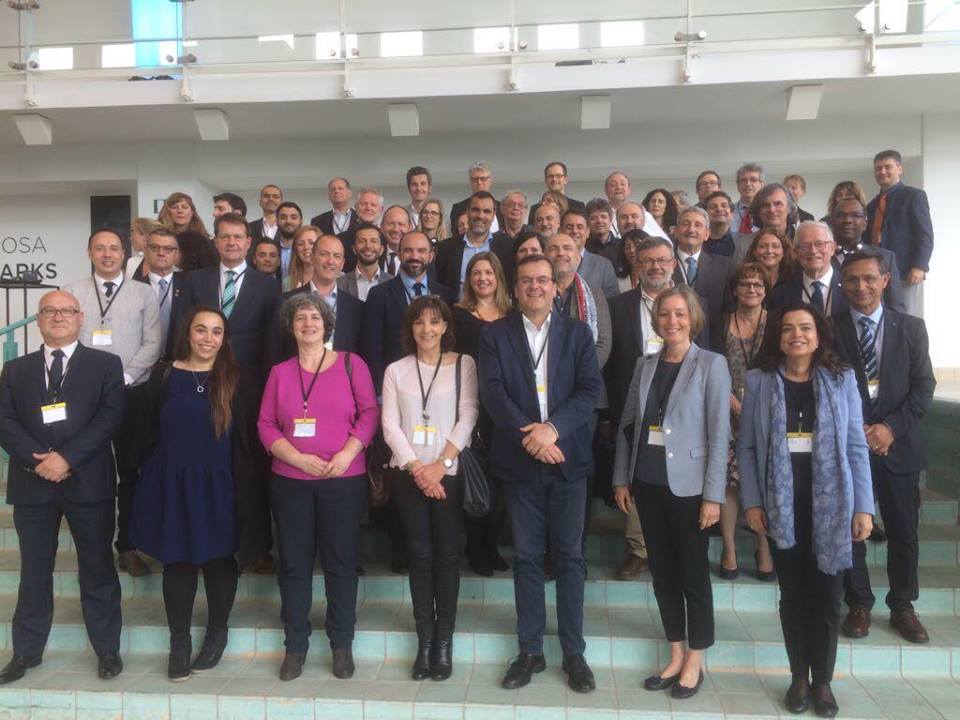Paris, France, June 2018 – How to tackle gender-based violence in Europe and Latin America? This was the theme of a three-day seminar organised in Paris (FR) on 25-27 June by Expertise France, the French international cooperation agency, as part of the Eurosocial cooperation programme between Europe and Latin America. Efus took part along with some 70 participants from both continents.
The Eurosocial programme promotes different types of action to support Latin American countries in designing and improving their policies against gender-based violence, in particular through sharing European good practices; dialogue between justice and social service practitioners; the improvement of the whole chain including better sanctions against perpetrators, and victim support, protection and recovery, as well as prevention and education in particular towards young people of both genders.
The seminar was aimed at encouraging dialogue between Europe and Latin America to seek joint solutions to fight gender-based violence in all its forms, including harassment and femicide, and improve public policies, social cohesion and citizen participation.
Participants shared their experience and highlighted the importance of evaluating and designing evidence-based strategies, but also the need to support victims, to develop prevention, to work on issues of masculinity, to strengthen the role of local authorities, and to improve access to justice.
Efus members mobilised against gender violence
Pilar De La Torre, Programme Manager, presented Efus’ approach to urban security, which must be based on prevention, the respect of human rights, the inclusion of people’s perception and feeling of insecurity, citizen participation, and intervention on risk factors. All these aspects must also incorporate the gender perspective.
Efus presented the schemes developed by its members, such as the Setúbal (PT) campaign “Men of Setúbal against domestic violence”, the Liege (BE) campaign as part of the White Ribbon international movement against domestic violence, and Malmö’s (SE) “Integrated domestic violence programme”.
Mariana Topoliceanu, Director of the Social Welfare department of Brasov (RO), presented her city’s and region’s initiatives, in particular regarding support to victim, and Gian Guido Nobili, Executive Director of the Italian Forum (FISU), shared the experience of Italian cities on data-collection and gender violence victim surveys.
Field visits in three Parisian municipalities
Efus also organised field visits on schemes put in place in three Parisian municipalities. The first is the integrated scheme developed by Ivry, which includes health services, mediation, legal assistance, social welfare, psychological counselling, and police support.
The second visit took place in Malakoff, which is working on the feeling of insecurity of women in public spaces, and the third was in the 18th arrondissement of Paris, which has established a network against gender violence with the participation of local female residents.


